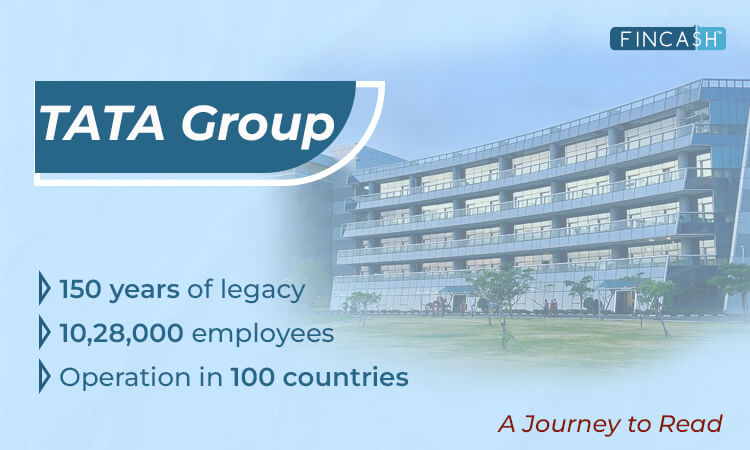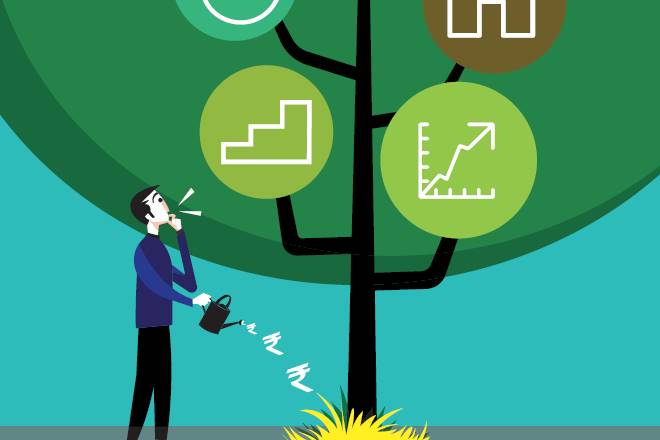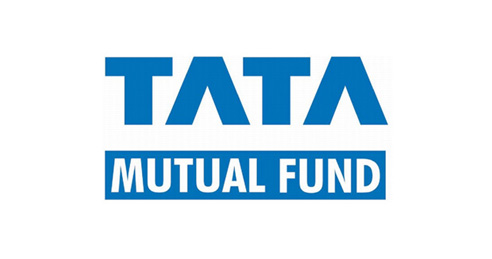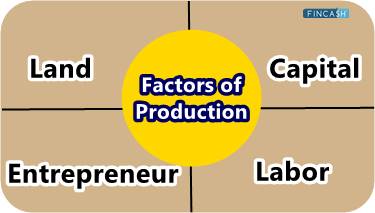
Table of Contents
- Key Information about the Tata Group
- History of the Tata Group
- Products and Services Offered by the Tata Group
- Tata Chairman
- List of Tata Companies
- Revenue of the Tata Group
- Marketing Strategy of Tata Group
- Pricing Strategy of the Tata Group
- Promotional and Advertising Strategies of the Tata Group
- Marketing Strategy of Tata Group
- What’s New with the Tata Group?
- Conclusion
Tata Group - History, Products and Services, Financial Information
Tata Group is an Indian multinational company founded in 1868 by Jamsetji Tata. It is headquartered in Mumbai and is one of the largest conglomerates in the world owned by Tata Sons today. It has operations running in more than 100 countries across 5 continents, with products and services reaching more than 150 countries.

Comprising 29 publicly listed companies, the Tata group boasts a combined Market capitalisation of Rs. 30.7 trillion (US $370 billion) as of February 2024. Prominent affiliates include Tata Consultancy Services, Tata Motors, Tata Projects, Tata Power, Titan, Tata Steel, Air India, Indian Hotels Company, Tata Consumer Products, Voltas, Trent, Croma and BigBasket.
One of the factors that set Tata apart is that each of the Tata companies is independent under the guidance and supervision of its own board of directors & shareholders. Tata Group recorded revenue of $113 billion for the financial year 2019. In this post, let’s understand the operations of Tata Group and find out more details about this company.
Key Information about the Tata Group
Here are some essential details about the company:
| Details | Description |
|---|---|
| Type | Private |
| Industry | Conglomerate |
| Founded | 1868; 152 years ago |
| Founder | Jamsetji Tata |
| CEO | Natarajan Chandrasekaran |
| Market Capitalisation | Rs. 30.7 trillion (US $370 billion) as of February 2024 |
| Headquarters | Bombay House, Mumbai, Maharashtra, India |
| Area served | Worldwide |
| Products | Automotive, Airlines, Chemicals, Defense, FMCG, Electric Utility, Finance, Home appliances, Hospitality industry, IT Services, Retail, E-commerce, Real Estate, Steel, Telecom |
| Revenue | US$113 billion (2019) |
| Owner | Tata Sons |
| Number of employees | 722,281 (2019) |
History of the Tata Group
After graduating in 1839, Jamshedji Nusserwanji Tata joined his father's trading firm, which specialised in general merchandise, and showed a keen interest in expanding trade with China. During the American Civil War, the Bombay cotton market experienced a boom, prompting Tata and his father to join the Asiatic Banking Corporation. However, when the market declined, Tata faced financial hardship, but the family's credit was eventually restored. In 1868, Tata secured a share in a profitable contract for the commissariat of Napier's trip to Abyssinia, which helped revive the family's fortune. With a Capital of Rs. 21,000, he founded a trading company in 1870.
Additionally, he purchased a bankrupt oil mill at Chinchpokli, converting it into a profitable cotton mill named Alexandra Mill. In 1874, he established another cotton mill in Nagpur called Empress Mill. In 1903, during his lifetime, the Taj Mahal Hotel at Colaba waterfront was inaugurated, becoming the first hotel in British India to be equipped with electricity.
Upon Jamsetji's demise, his eldest son, Dorabji Tata, became chairman in 1904. In 1907, he founded the Tata Iron and Steel Company (TISCO), now known as Tata Steel, signalling the group's global aspirations. Tata Limited established its first overseas office in London, marking its international presence. Tata Power, Western India's first hydroelectric plant, was established in alignment with the founder's vision. Additionally, the Indian Institute of Science was founded, with its inaugural batch of students admitted in 1911.
JRD Tata took the chairmanship of the Tata Group in 1938, overseeing a remarkable expansion of assets from US $101 million to over US $5 billion. Under his leadership, the group expanded from 14 to 95 enterprises by 1988, encompassing ventures in diverse sectors such as chemicals, technology, cosmetics, marketing, engineering, Manufacturing, tea, and software services. In 1932, JRD founded Tata Air Services, later renamed Tata Airlines, later nationalised by the Government of India in 1953. 1945, Tata Motors was established, initially focusing on locomotives and later diversifying into the commercial vehicle market through a joint venture with Daimler-Benz in 1954. In 1968, Tata Consultancy Services (TCS) was founded.
Ratan Tata took the chairmanship of the Tata Group in 1991, according to India's economic liberalisation. In 2008, Tata Motors introduced the Tata Nano, marketed as "the world's most affordable car." In 2017, Natarajan Chandrasekaran was appointed chairman, overseeing the restructuring of business verticals and increasing promoter stake ownership in companies. Under his leadership, the group pursued acquisitions through Insolvency law, invested in e-commerce, expanded its airline business by acquiring Air India, and acquired Air Asia India completely. Chandrasekaran outlined a future strategy focused on healthcare, electronics, and digital initiatives. Tata-owned Air India received approval to acquire AirAsia India, following a proposal submitted nearly two months earlier and approved by the Competition Commission of India (CCI).
Talk to our investment specialist
Products and Services Offered by the Tata Group
The Tata Group is divided into an array of companies Offering a gamut of products and services, such as:
- Commercial vehicle manufacturing
- Iron and steel
- Manufacturing and selling of home appliances
- Chemicals
- Integrated power
- Wristwatch manufacturing
- Retail
- Hospitality
- Design, manufacturing and selling of luxurious cars
- Coffee, tea, pepper and related products
- Consultancy services
- Consumer products
- Design and technology services
- Communication
- Airlines
Tata Chairman
The chairman of Tata Sons is also the chairman of Tata Group. There have been 7 chairmen since 1868-2020.
- Jamsetji Tata (1868-1904)
- Sir Dorab Tata (1904-1932)
- Nowroji Saklatwala (1932-1938)
- JRD Tata (1938-1991)
- Ratan Tata (1991-2012)
- Cyrus Mistry (2012-2016)
- Ratan Tata (2016-2017)
- Natrajan Chandrasekaran (2017 till present)
The Taj Mahal Palace and Tower was the first luxury hotel in India. Jamsetji Tata, an entrepreneur and philanthropist, had a great vision for the commercial and the academic sector of India. His leadership and innovation have propelled the growth of the Tata group. After Jamsetji Tata died in 1904, his son Sir Dorab Tata took over as chairman of the group. Under Sir Dorab’s leadership, Tata undertakes new ventures like steel, electricity, education, aviation and consumer goods. After his death in 1932, Sir Nowroji Saklatwala held chair and around 6 years later Jehangir Ratanji Dadabhoy Tata (JRD Tata) became the chairman. He roped in other blooming industries like the chemicals, technology, marketing, engineering, cosmetics, manufacturing, tea and software services. It was during this time that Tata Group received international attention.
In 1945, the Tata group established Tata Engineering and Locomotive Company (TELCO) for the manufacturing of engineering and locomotive products. In 2003, this same company was renamed as Tata Motors. Ratan Tata, JRD Tata’s nephew, took over as chairman in 1991. He is known as India’s greatest entrepreneurs because of his business and leadership skills. Under his leadership, Tata Group grew by leaps and bounds. He globalised Tata’s business like never before. In 2000, Tata acquired London-based Tetley Tea. In 200, Tata Group along with American International Group Inc. (AIG) created the Tata-AIG. In 2004, Tata purchased South Korea’s Daewoo Motors- a truck manufacturing operation.
Under Ratan Tata’s innovative skills, Tata Steel acquired the great Anglo-Dutch steel manufacturer Corus Group. This was the greatest corporate takeover ever done by any Indian company. In 2008, Tata Motors was in headlines for months because of its official launching of Tata Nano. This was the one car that appealed to both lower-middle-class and the middle class of the country in a way nothing else in the automotive industry did. The car was being sold for a price as less as $1500 to $3000. It was popularly known as the ‘People’s Car’.
In the same year, Tata Motors also purchased famous British brands like Jaguar and Land Rover from the Ford Motor Company. In 2017, the Tata Group announced that it was looking forward to its European steelmaking operations to merge with ThyssenKrupp- a German steelmaking company. The deal was finalised in 2018, thereby giving birth to Europe’s second-largest company after ArcelorMittal.
List of Tata Companies
Here’s a list of companies under Tata Group with their services. Their annual revenue is mentioned below:
| Tata Group of Companies | Sector | Revenue (Crores) |
|---|---|---|
| Tata Consultancy Services | IT Services company | Rs. 1.62 lakh crores (2020) |
| Tata Steel | Steel production company | Rs. 1.42 lakh crores (2020) |
| Tata Motors | Automobile manufacturing company | Rs. 2.64 lakh crores (2020) |
| Tata Chemicals | Producing basic chemistry products, consumer and speciality products | Rs. 10,667 crores (2020) |
| Tata Power | Involved in conventional and renewable energy sources, power generation services, etc | Rs. 29,698 crore (2020) |
| Tata Communications | Digital infrastructure | Rs. 17,137 crores (2020) |
| Tata Consumer Products | Dealing with food and beverages under one umbrella | Rs. 9749 crores (2020) |
| Tata Capital | Dealing with retail, corporate and institutional customers | Rs. 780 crores (2019) |
| The Indian Hotels Company | IHCL has 170 hotels including Taj Hotel under its franchise | Rs. 4595 crores (2019) |
Tata Consultancy Services
Tata Consultancy Services were incorporated in 1968. Set up by the Tata Sons Ltd., it was a division that meant to support the Electronic Information Handling (EDP) requirements and provide the executives counselling administrations. In the 1971, the first worldwide task was commenced. Later, in 1974, the organisation spearheaded the global conveyance model for IT administrations with their first seaward customer.
Settled in Mumbai, TCS has been working through 285 workplaces in 46 nations as 147 conveyance communities in 21 nations. Tata Consultancy ranked among the top 10 global IT service providers in the world. In the 50th year since its founding, TCS was recognised among the top 3 brands in IT Services globally and top 60 brands in the United States. In 2018, TCS signed various industry-defining deals including the largest loT deal with Rolls Royce.
Tata Steel
Tata Steel is one of the most popular steel-producing companies in the world today. The organisation is a broadened steel maker with significant activities in India, Europe and South East Asia. The organisation also holds fabricating units in 26 nations and a business presence in more than 50 nations. It is spread over 5 continents with an employee base of over 65,000. It acquired Corus in the European market in 2007 and established itself there. It supplies high-quality strip steel to the Netherlands, UK and across Europe for automotive, construction, engineering and packaging.
In 2004, Tata Steel established a presence in South-East Asia with the acquisition of NatSteel in Singapore. In 2005, it acquired a big stake in a Thailand-based steelmaker called Millennium Steel. Today, the organisation includes finding and mining iron metal coal ferro composites and different minerals; planning and assembling of plants and hardware for steel oil and flammable gas energy, force mining rail lines, aeronautics and space enterprises.
Tata Motors
Consolidated in 1945, Tata Motors Ltd., first came up with the name of Tata Engineering and Locomotive Co. Ltd. For assembling trains and other designing items. Tata Motors has established its hold and R&D centres across India, UK, Italy and South Korea. In India, Tata Motors appears to be the market leader in the field of commercial vehicles. It is also among the top passenger vehicle manufacturers with more than 9 million vehicles on the road. With design and R&D centres located in India, the UK, Italy and Korea, Tata Motors strives to pioneer new products that inspire the imagination of GenNext customers. It's operations run in the UK, South Korea, South Africa, Indonesia and Thailand with 109 subsidiaries and companies including Jaguar Land Rover and Tata Daewoo. It also signed an MoU with the Government of Maharashtra for 1000 Electric Vehicles for passenger and commercial vehicles in the state.
The organisation’s works on auto, incorporate data innovation, IT administrations development, hardware producing machine instruments, plant robotisation arrangements, high-accuracy tooling and electronic as well as plastic parts for specific applications.
Tata Chemicals
Tata Chemicals started in 1939 in Gujarat and today is the 3rd largest producer of soda ash in the world. This one is a worldwide spread organisation with interests in puts attention on LIFE – living modern and cultivating basics. It has its operations running in North America, Europe, Asia and Africa. Its products and services reach to over 148 million households in India through salt, spices and pulses and Speciality Products services covers around 80% of districts in India with over 9 million farmers being benefitted.
Tata Power
Tata Power Ltd., is the biggest coordinated private force organisation of India that has a prevalent presence across the world. Tata power charged its first hydro-electric force creating station in 1915 that was placed at Khopoli. This station had a limit of 40 MW, which was later increased to 72 MW. It is India's largest integrated power company with 2.6 million distribution consumers. It has remained India's #1 Solar Epc company for over 4 years in a row. It has installed the world's largest solar carport of 2.67 Mw at Cochin International Airport.
Tata Consumer Products
Tata's Consumer Products is the creator of great brands like Tata Tea, Tata Salt and Tata Sampann. It has a combined reach of over 200 million households in India. In the beverages business, Tata's consumer products are the second-largest supplier in branded tea in the world. It has more than 300 million servings every day across the world. Brands included Tata Tea, Tetley, Vitax, Himalayan Natural Mineral Water, Tata Coffee Grand and Joekels. More than 60% of the solidified Income comes from businesses set up in different sectors outside India. Tata Global Beverages has a joint endeavour with Starbucks, called Tata Starbucks Limited. The organisation additionally has a joint venture with PepsiCo, called NourishCo Beverages Ltd., which produces non-carbonated, prepared-to-drink refreshments that emphasise on wellbeing and enhanced health.
Tata Communications
Earlier known as Videsh Sanchar Nigam Ltd., Tata Communications is present in more than 200 countries in the world today. It connects businesses to 60% of the world's cloud giants and is listed in The Bombay Stock Exchange and National Stock Exchange with the market capitalisation of $2.72 billion. Its services reach more than 400 million people globally.
Tata Capital
Tata Capital is the financial services company of the Tata Group and is registered with the Reserve Bank of India as a Systemically Important Non-Deposit Accepting Core Investment Company. An auxiliary of Tata Sons Limited, Tata Capital was established in 2007. It is the monetary administration of the $108 billion worth Tata Group. This firm holds Tata Capital Financial Services Limited (TCFSL), Tata Securities Limited, and Tata Capital Housing Finance Limited. It servers corporate, retail, and institutional clients through TCFSL. Its business covers commercial finance, infrastructure finance, Wealth Management, consumer loans and others. Tata Capital has over 190 branches.
Indian Hotels Company Limited
Indian Hotels Company Limited (IHCL) is Tata Group's iconic brand. The IHCL and their auxiliaries are altogether known as Taj Hotel Resorts and Palaces and are perceived as one of Asia’s biggest and best lodging organizations. It has 170 hotels including Taj Mahal Palace in Mumbai. It has hotels spread over 80 locations in 12 countries spread across 4 continents. IHCL is among South Asia's largest companies for hospitality. The number of the Taj Group of Hotels remains at 145 lodgings with 17145 rooms. The group’s Portfolio likewise incorporates 42 lodgings under the Ginger brand, which has a total number of 3763 rooms. In the year 1903, the organisation opened their first lodging – The Taj Mahal Palace and Tower Mumbai. The organisation, at that point, attempted significant development by building an adjoining tower block and expanding the quantity of rooms from 225 to 565. Taj was named as India's strongest brand for 2020 with Brand Strength Index (BSI) score of 90.5 out of 100 and corresponding elite AAA+ brand strength rating by Brand finance. Company Name| Company Code| NSE Price| BSE Price|
Revenue of the Tata Group
Tata Sons serves as the primary investment holding company and promoter for Tata Companies. Philanthropic trusts hold 66% of Tata Sons' equity share capital, supporting education, health, livelihood generation, and art and culture endeavours. During the Fiscal Year 2022-23, Tata companies collectively generated a revenue of Rs. 12 trillion ($150 billion) and employed over 1 million individuals. Each Tata enterprise operates autonomously under the governance of its respective board of directors. There are 29 publicly listed Tata enterprises with a combined market capitalisation of Rs. 24 trillion ($300 billion) as of July 31, 2023.
Marketing Strategy of Tata Group
Let's delve into the marketing mix of Tata Group.
Product Strategy
Tata Group comprises 30 companies offering services across diverse sectors, forming the group's product mix. Each enterprise operates independently under its own board of directors and operates within specific sectors:
Information Technology
- Tata Consultancy Services
- Tata Elxsi
Telecom and Media
- Tata Communication
- Tata Sky
- Tata Teleservices
Steel
- Tata Steel
Automobile
- Tata Motors
- Jaguar Land Rover
- Tata Autocomp Systems
Consumer and Retail
- Tata Chemicals
- Tata Consumer Products
- Titan Company
- Infiniti Retail
- Voltas
Financial Services
- Tata Capital
- Tata AIA Life
Infrastructure
- Tata Power
- Tata Projects
- Tata Consulting Engineers
Pricing Strategy of the Tata Group
As Tata Group encompasses various subsidiaries, each subsidiary devises its own pricing strategy for the products and services it offers. Nevertheless, collectively, Tata Group adheres to a differential pricing strategy. As a multinational conglomerate, it leverages the flexibility to set different prices for consumers based on factors such as geographical location, age, gender, etc. This approach allows the group to optimise its profitability and sustain a market capitalisation exceeding Rs. 12 Trillion as of Feb 2020. Additionally, the company employs penetration pricing, wherein it sets prices lower than industry norms to penetrate the market and garner acceptance from customers. This strategy facilitates the acquisition of a significant market share and fosters a positive perception among the general public.
Promotional and Advertising Strategies of the Tata Group
The Tata Group does not adopt a uniform promotional and advertising approach across all its companies. Instead, each company formulates its own promotional and advertising plans, occasionally engaging external agencies to execute campaigns. Recent years have seen the implementation of various advertising techniques, including:
- Utilisation of televised advertisements
- Endorsements by celebrities with substantial fan bases and strong social media presence
- Utilisation of print media such as newspapers, magazines, and journals
- Online advertising initiatives
- Offering sales promotion deals during festivals
- Organising promotional events across different global locations
- Sponsorship of internationally renowned events
Marketing Strategy of Tata Group
The Tata Group employs a diverse array of marketing methods and tools while continuously refining and evolving its marketing strategy. Let's delve into their core marketing strategies.
Influencer Marketing
The Tata Group leverages influencer marketing to broaden its audience reach. This strategy involves collaborating with content creators who possess a substantial following and leveraging their creativity to engage with a new audience.
Digital Marketing
Utilising Google and YouTube advertisements, the Tata Group endeavours to drive traffic to their website. Through Google Ads, they strategically target specific keywords to align with customer search queries, thereby enhancing product awareness and attracting an interested audience. Additionally, the Tata Group emphasises the use of Facebook advertisements, including lead generation ads, to further bolster its digital marketing efforts.
Website Design
The Tata Group boasts a user-friendly website with compelling content that consistently draws a broad audience. Acting as a comprehensive hub, their website offers a wealth of information, including the group's history, segment-wise operations, new product launches, significant business updates, and job vacancies. The enhanced responsiveness of their website ensures prominent search engine visibility.
What’s New with the Tata Group?
Here are some recent developments concerning the Tata Group:
- Tata Group intends to construct a sizable semiconductor fabrication Facility in Dholera, Gujarat, with operations slated to commence in 2024.
- Tata Group is engaging in discussions with startups to acquire technical expertise.
- Tata Group is exploring opportunities to sell a portion of its stake in Tata Digital to private Equity Funds.
- Tata Group aims to utilise some of the proceeds to reduce the company's debt burden and inject fresh equity into subsidiaries facing financial losses.
- In collaboration with the New York Academy of Sciences, Tata Group will unveil a prize recognising Indian scientists for their research contributions.
Conclusion
The insights mentioned above highlight the Tata Group's stature as one of the premier multinational conglomerates globally, wielding significant influence. As one of India's foremost private-sector employers, taxpayers, and contributors to foreign exchange Earnings, the Tata Group plays a pivotal role in the nation's Economy. Embracing technological advancements, the company adeptly integrates them into its marketing endeavours to maintain its competitive edge. Nevertheless, the Tata Group grapples with operational challenges. Despite its successes, certain marketing campaigns have fallen short, and achieving the desired market share in specific sectors has proved elusive. Yet, amidst these challenges, the Tata Group remains committed to progress and innovation, exemplifying its status as a company of national significance.
All efforts have been made to ensure the information provided here is accurate. However, no guarantees are made regarding correctness of data. Please verify with scheme information document before making any investment.












